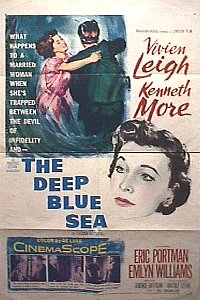Development
The play had been very successful and a number of companies expressed interest in obtaining the film rights. Alexander Korda offered £40,000 plus £10,000 to write the screenplay. He intended for Anatole Litvak to direct and Olivia de Havilland to star as Hesther. However, negotiations stalled when 20th Century Fox refused to let Litvak direct the film. [4]
Some time later, Korda approached Rattigan again and he bought the screen rights for £7,500, plus £4,000 to Rattigan to write the script. Korda wanted Vivien Leigh to play Hesther, Kenneth More to play Freddie, and Charles Boyer to play Mr Miller, but said Leigh would not accept Rattigan's preferred director, Anthony Asquith. Rattigan started working on the script after the premiere of Separate Tables. Korda sold the project on to 20th Century Fox, which made him an instant profit. Fox insisted the film be directed by Anatole Litvak, and that it be in colour and CinemaScope. Boyer turned down the part of Mr Miller, so Eric Portman was cast. Litvak's influence meant Rattigan "opened up" the story, incorporating scenes such as Freddie and Hesther in a ski resort, and Freddie testing planes. [5]
Kenneth More was the only key member of the original cast (who had also appeared in a BBC Television version in 1954) to be hired for the film, as Alexander Korda wanted to use names that were more recognisable to movie-goers. (More had just been put under contract to Korda.) [6] More always felt this was a mistake, particularly the casting of Vivien Leigh rather than Peggy Ashcroft. He later wrote:
The casting of the beautiful Vivien Leigh was absurd. She was supposed to be an outwardly ordinary but secretly highly-sexed woman who meets a young pilot on the golf course and falls for him. My first lines on meeting her were to say: 'My God, Hes, you're beautiful.' She had never been told this before —- and understandably it had a remarkable effect on her. But when the part is played by a woman generally held to be one of the most beautiful in the world, the whole meaning is lost. [7]
Shooting
More did not enjoy filming, feeling that the use of CinemaScope and changes made to the original play detracted from the intimacy of the story. He also felt he had poor chemistry with Leigh. [8] "We were never in complete accord," wrote More. "I thought her interpretation was wrong, and so when we played a scene together we had the wrong chemistry between us." [9]
This page is based on this
Wikipedia article Text is available under the
CC BY-SA 4.0 license; additional terms may apply.
Images, videos and audio are available under their respective licenses.
